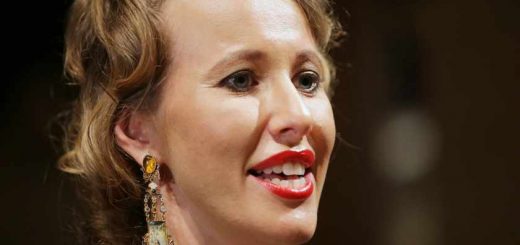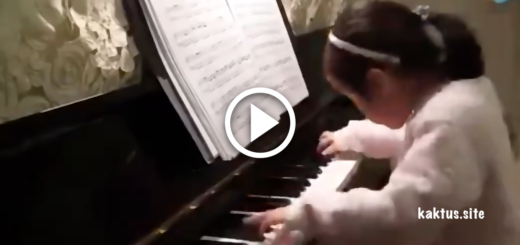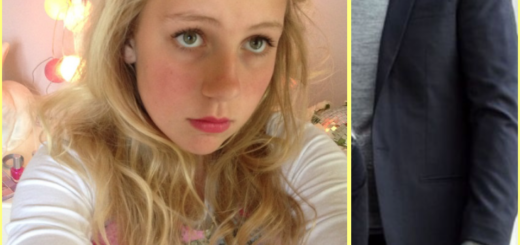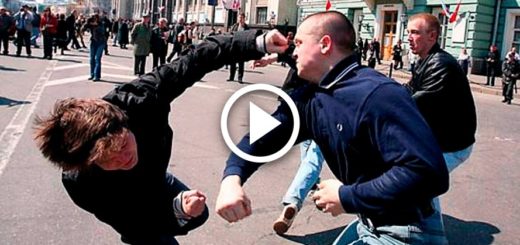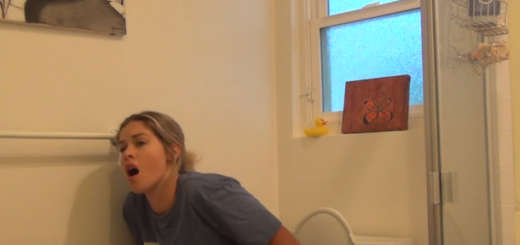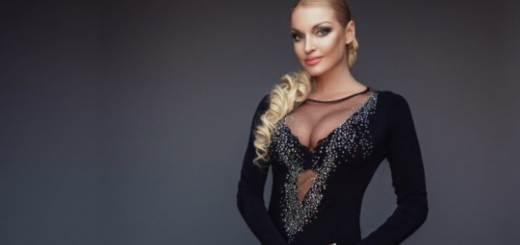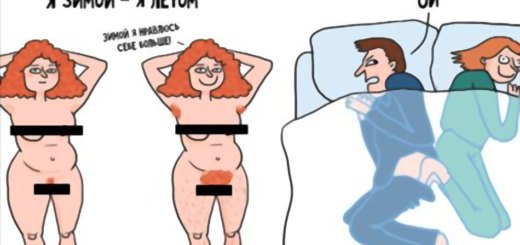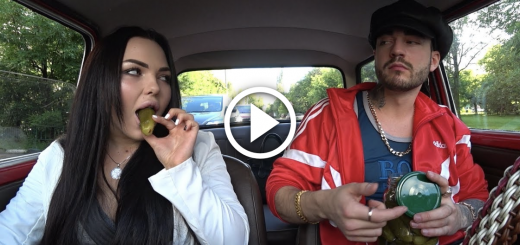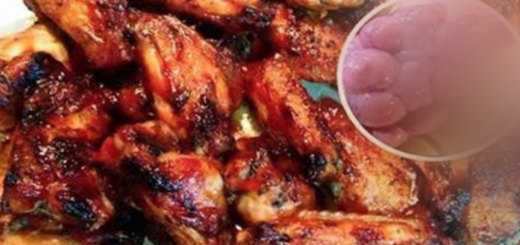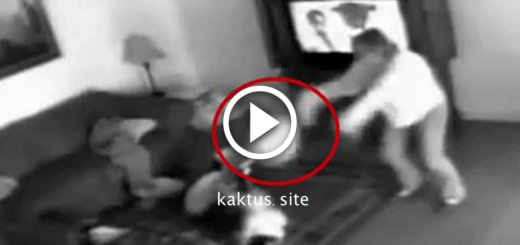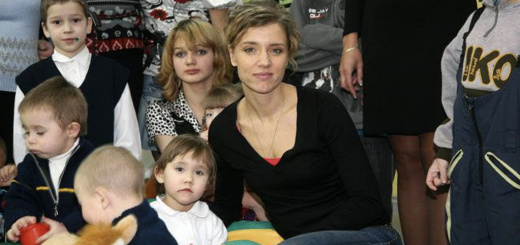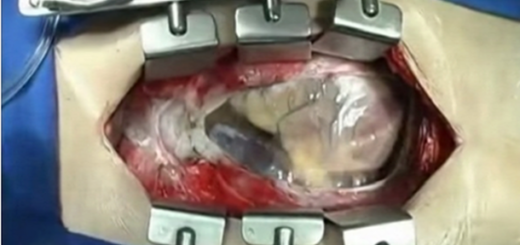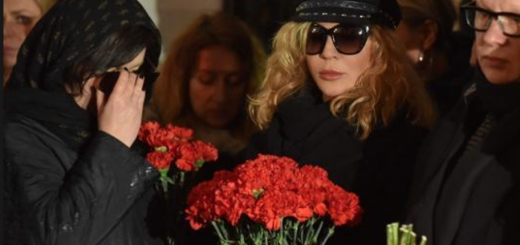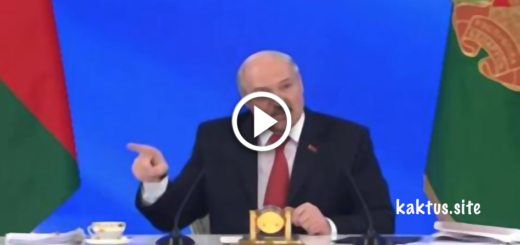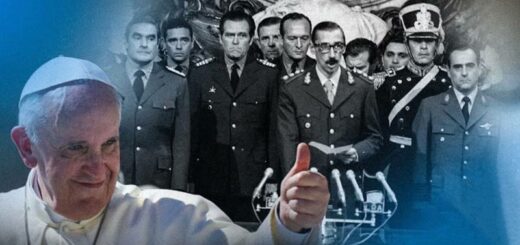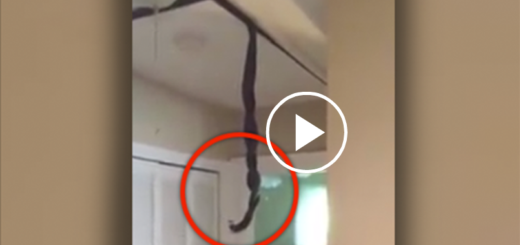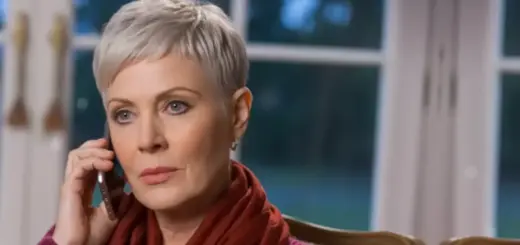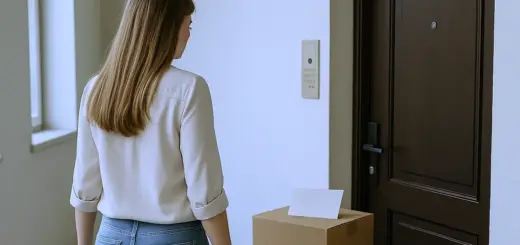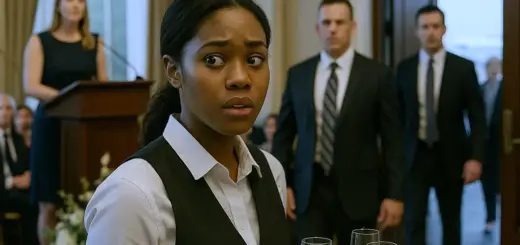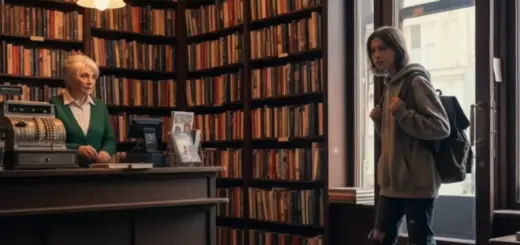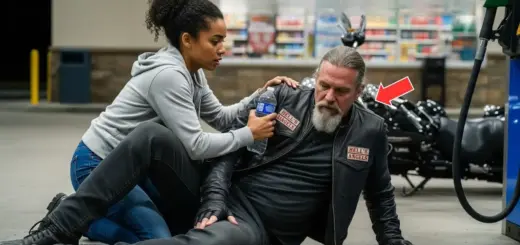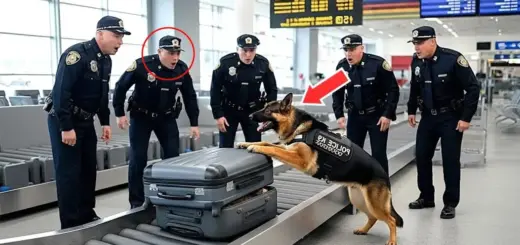The sound of the apartment door closing echoed through the hallway as Aiden left for his squash game. I stood at the window watching him exit our building, his gym bag slung over his shoulder. That confident stride unchanged after all these years.
He turned left toward the athletic club just as he did every Tuesday and Saturday. Normal. Predictable.
Except nothing felt normal anymore. The moment he disappeared around the corner, I moved with purpose toward his home office. The mahogany desk we’d bought at an estate sale in the Hamptons sat beneath his diplomas from Cambridge and Harvard Business School.
Everything meticulously organized, as always. But organization, I’d learned from years of forensic accounting, often masked the most elaborate deceptions. I opened my laptop and logged into our joint accounts, my fingers moving across the keyboard with the same precision I used when tracking embezzled funds for Fortune 500 companies.
The credit card statements loaded slowly, each month revealing a pattern that made my chest tighten. There it was. A charge at the Tokyo Mandarin Oriental from March 15th through 18th.
I remembered that weekend clearly. Aiden had supposedly driven to Connecticut to help his mother reorganize her garage after his father’s death. I’d offered to go with him, but he’d insisted I stay home and rest after a particularly grueling audit.
The hotel charge was for two guests. Room service for two. Spa treatments for two.
My hands trembled slightly as I scrolled further. The Four Seasons. A weekend when he’d claimed to be at client dinners in Midtown.
I’d been home with food poisoning, too sick to question why his client meetings required overnight stays at hotels 40 minutes from our apartment. I pulled up his business credit card next. More hotels.
More restaurants I’d never heard him mention. Jewelry purchases from Cartier that had never materialized as gifts for me. My methodical brain, trained to spot financial irregularities, cataloged each discrepancy while my heart tried to rationalize them away.
Maybe they were client gifts. Maybe the hotels were for visiting executives. Maybe there was an explanation that didn’t involve my husband living an entirely separate life.
My phone rang. Sophia Chen’s name appeared on the screen. “I’m 15 minutes away,” she said without preamble. “And Ava, you need to prepare yourself. What I found—it’s extensive.”
Sophia and I had been roommates at NYU, both studying accounting before our paths diverged. Mine toward forensic investigation, hers toward what she cryptically called private intelligence. Her divorce from Richard, the Wall Street trader who’d been sleeping with his 23-year-old assistant, had transformed her from corporate analyst to someone who specialized in what she called marital reconnaissance.
While waiting for her, I continued my investigation. Our joint investment accounts showed regular activity, but when I dug deeper, I found withdrawals I didn’t recognize. Small amounts at first: $5,000 here, $10,000 there, always just below the threshold that would trigger automatic alerts.
The kind of systematic siphoning I’d seen in countless fraud cases, except this time it was happening in my own accounts. The doorbell rang. Sophia stood there in her typical all-black ensemble, tablet clutched against her chest, her expression grim.
She’d worn that same look when she discovered Richard’s affair, when she’d had to tell me about my father’s secret gambling debts after his death, when life demanded brutal honesty between friends. “Show me,” I said, leading her to the dining room table. She opened her tablet, fingers flying across the screen with practiced efficiency.
“The woman your sister saw him with is Madison Vale, 26 years old, pharmaceutical sales representative for Silex Industries.” A photo appeared: blonde, conventionally beautiful in that polished way that suggested expensive maintenance. “She’s been working the Manhattan territory for two years.”
“Her social media is mostly private, but I managed to access some tagged photos.” The images that followed made my stomach plummet. Madison and Aiden at a restaurant I didn’t recognize.
Madison and Aiden at what looked like a hotel bar in Miami. Madison and Aiden at a charity gala, the same night I’d been in Boston for a conference. “How long?” My voice sounded distant, like someone else was asking.
“Based on the digital footprint, at least three months.” “But Ava, that’s not the strangest part.” Sophia pulled up another screen. “I accessed your building’s security footage through a contact.”
“Look at this.” The video showed our apartment building’s lobby from last Tuesday. There was Aiden, entering at 6:47 p.m., briefcase in hand.
The timestamp matched when he’d arrived home from work. Everything looked normal until Sophia zoomed in. “Watch his shadow,” she said.
The shadow fell at the wrong angle. It flickered slightly when he passed under the chandelier. Details that would be invisible to casual observation but glaring to someone looking for deception.
“This is deepfake technology,” Sophia explained. “Someone has been inserting fabricated footage into your building’s security system.” “This isn’t amateur work.”
“We’re talking about sophisticated software that costs hundreds of thousands of dollars to implement properly.” I stared at the screen, my mind struggling to process what this meant. “Why would someone go to such lengths?”
“That’s what we need to figure out.” “But there’s more.” She pulled up another file. “I spoke to a few of your neighbors.”
“Discreetly.” “Mrs. Patterson from 20C mentioned something interesting.” Mrs. Patterson.
78 years old. Lived alone with her two Persian cats. Spent most of her time watching the hallway through her peephole.
The building’s unofficial security system. “She said she saw Aiden leaving with suitcases three months ago.” The weekend you were at that conference in Boston.
“She remembered specifically because he helped her with her groceries on his way out.” “Said he was going away for a while.” I remembered that weekend.
The conference had been mandatory. Two days of mind-numbing presentations about new SEC regulations. I’d come home Sunday evening to find Aiden cooking dinner.
Rosemary chicken, my favorite. He’d said he’d spent the weekend organizing his home office and catching up on sleep. The office had looked exactly the same.
“But I came home and he was here,” I said, the words feeling thick in my throat. “Was he?” “Or was someone who looked exactly like him?”
The room tilted slightly. I gripped the edge of the table, my accountant’s brain trying to create logical columns where none existed. “That’s insane. People don’t just… get replaced.”
“No,” Sophia agreed, her voice gentle but firm. “They don’t.” “Not without significant resources and planning.”
“Ava, has Aiden been working on anything sensitive?” Any deals or projects that might make him a target? I thought about his recent work. Mergers, acquisitions, the usual investment banking activities.
Nothing that seemed worth this level of elaborate deception. Unless there was something he hadn’t told me about. Another secret to add to the growing pile.
“I need to see more footage,” I said, my voice steadier now. “Every entry and exit for the past three months.” Credit card receipts.
Phone records. Everything. Sophia nodded, already typing. “I’ll get what I can.”
“But Ava, you need to be careful.” Whoever is doing this, whether it’s Aiden or someone else, they’ve invested serious resources. This isn’t a simple affair.
This is something else entirely. Sophia left after giving me an encrypted phone to contact her. Warning me to act normally until we understood the full scope of what was happening.
I spent the rest of the afternoon in a state of suspended animation. Cleaning things that didn’t need cleaning. Organizing files that were already organized.
Anything to keep my hands busy while my mind raced through possibilities that seemed increasingly insane. At 5:30, I heard Aiden’s key in the lock. The man who might not be Aiden.
The stranger who’d been living in my home, sharing my bed, playing the role of my husband with such precision that I’d never questioned it until today. I arranged my face into something resembling calm and started preparing dinner. “Something smells amazing,” he called out, same as always.
The routine so familiar it felt like muscle memory. I decided to make shrimp scampi, my grandmother’s recipe from Naples. The garlic and white wine sauce filled the apartment with its rich aroma.
This particular dish held significance in our relationship. The real Aiden had a severe shellfish allergy, documented by three emergency room visits over the years. His medical alert bracelet, worn religiously for seven years, specifically listed shellfish as life-threatening.
“Your favorite,” I said, setting the plate in front of him. My voice sounded normal, even pleasant. Twenty years of maintaining composure during fraud investigations had taught me to compartmentalize panic.
He looked at the dish with what appeared to be genuine delight. “You haven’t made this in ages.” That was true.
I hadn’t made it because my husband would die if he ate it. But this man picked up his fork without hesitation, twirling the linguine with practiced ease, bringing a shrimp to his mouth with appreciation. No reaction.
No swelling. No reaching for an EpiPen. Just a man enjoying his dinner.
“This is incredible,” he said, taking another bite. “Your grandmother would be proud.” My grandmother had been dead for 15 years, but she would have been horrified to see me serving shellfish to someone I was testing like a laboratory specimen.
I watched him eat, cataloging every gesture, every expression, looking for the seams in his performance. “So I was thinking,” I said, refilling his wine glass with the measured calm of someone discussing the weather. “We should visit your mother this weekend.”
The real Aiden would have immediately manufactured an excuse. His relationship with his mother was complicated at best, toxic at worst. She’d never approved of me, never forgiven him for marrying outside their social circle.
Our visits to Connecticut were carefully rationed, usually requiring weeks of negotiation. “That sounds wonderful,” he replied without missing a beat. “She’ll be thrilled to see us.”
Thrilled. His mother had never been thrilled about anything involving me. I felt my phone recording from its position behind the fruit bowl, capturing this conversation that would later serve as evidence of… what?
That my husband had been replaced by someone who actually liked his mother? “We could stay the whole weekend.” I continued pushing harder.
Help her with that garden project she mentioned. “Perfect.” “I’ll call her after dinner to let her know.”
The real Aiden would rather have dental surgery without anesthesia than spend a weekend doing manual labor for his mother. This man was failing every test, yet succeeding perfectly at being a better version of my husband. After dinner, we settled onto the couch for our usual evening routine.
Netflix, mild conversation about our days, the comfortable silence of a long-married couple. Except nothing about this felt comfortable anymore. Every gesture he made, every word he spoke felt like watching a highly skilled puppeteer manipulate strings I couldn’t see.
“I’m exhausted,” I announced at ten, stretching in an exaggerated way. “That audit today really wore me out.” “You work too hard,” he said, kissing my forehead.
The lips were warm, the pressure familiar, but wrong in some indefinable way. In our bedroom, I changed into pajamas while he brushed his teeth. The sounds from the bathroom were perfect.
The electric toothbrush for exactly two minutes, the mouthwash gargle, the face-washing routine. Someone had studied my husband’s habits with anthropological precision. When he climbed into bed beside me, I forced myself to remain still.
He turned on his side, facing away from me, his breathing evening out within minutes. The real Aiden was a chronic insomniac who usually read until well past midnight. This man fell asleep like someone without worries, without secrets, without a stolen identity weighing on his conscience.
I waited, counting his breaths, until I was certain he was deeply asleep. Then I slipped out of bed with the careful movements of someone defusing a bomb. His briefcase sat in its usual spot beside the dresser, leather worn soft from years of use.
The real Aiden’s briefcase, carried by an imposter. Inside, the usual contents appeared normal at first glance. Laptop, various files, business cards.
But beneath a stack of investment portfolios, I found an envelope that didn’t belong. My fingers trembled as I extracted its contents. A pay stub made out to Marcus Webb, address in Queens.
An actor’s union card. But most damning were the handwritten notes, pages and pages in someone else’s handwriting, documenting my life in excruciating detail. My morning routine, down to which coffee mug I preferred.
My speech patterns with certain phrases highlighted. Details about our relationship history that read like a script prepared for an audition. “Ava likes her coffee with one sugar, no cream.”
“She calls her sister every Tuesday and Thursday.” “Anniversary is October 15th.” “She expects flowers but pretends she doesn’t.”
“Her father died three years ago. Sensitive subject.” “She tears up during the final scene of Casablanca every time.” Our entire marriage reduced to bullet points.
A character study for someone preparing to play the role of devoted husband. At the bottom of the last page, a note in different handwriting. “Three months maximum. Maintain cover until transfer complete.”
Three months. This performance had an expiration date. I slipped the papers back into Marcus’s briefcase with trembling fingers.
My mind processing the implications of “transfer complete.” Transfer of what? Our assets?
The apartment? My entire life? I photographed each page with the encrypted phone Sophia had given me.
Then crept back to bed where the stranger wearing my husband’s face continued sleeping peacefully. The next morning, Sunday, I watched Marcus perform his morning routine with newfound clarity. Every gesture was studied.




